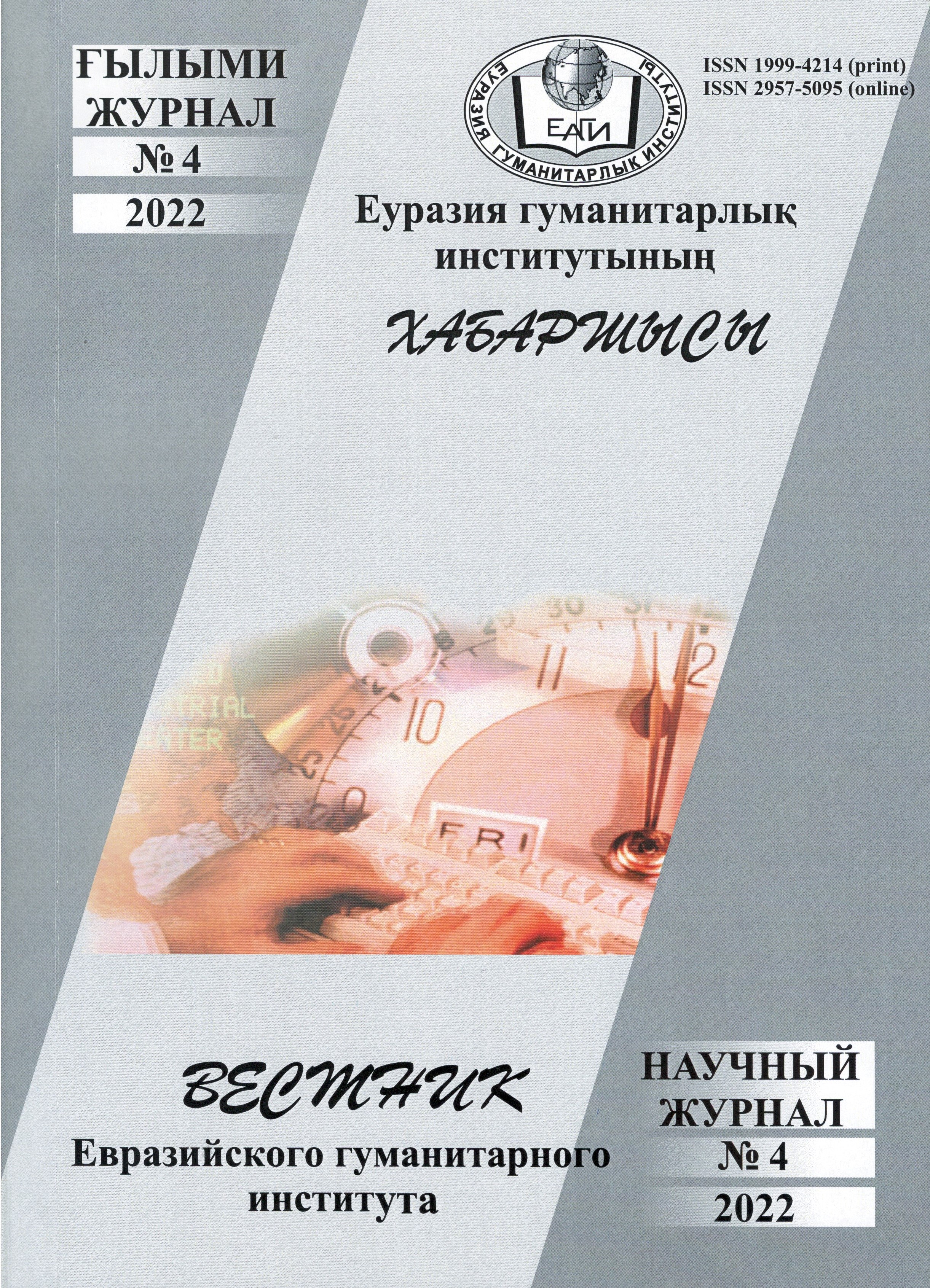THE PRINCIPLE OF HISTORICISM IN THE WORKS OF A. KEKILBAYEV
Keywords:
historicism, psychologism, folklore traditions, translation problemsAbstract
The article deals with the question of the classical tradition and its creative development, enrichment, continuity and qualitative differences in the approach to the principle of historicism. Historicism is a necessary condition for creating a full-blooded realistic character. Historicism is considered in detail by the authors on the material of the early prose of the Kazakh writer A.Kekilbayev. Based on a concrete analysis of works belonging to different aesthetic systems, the authors strive to show the mechanism of interaction of characters and circumstances at different stages of the formation and development of realistic art, to present the national character in its historical and aesthetic essence. The innovation of A. Kekilbayev is revealed on concrete examples, the logic of the ideological and aesthetic enrichment of the principle of historicism in Kazakh literature is traced. The article analyzes the problems of historical and artistic truth, the continuity of cultural, folklore traditions and literature. The innovation of A. Kekilbayev's prose is investigated. The comprehension of modernity, the untroubled past and the foreseeable future in a single cause-and-effect relationship; the search for social patterns in the previous, human experience; the socio–psychological study of a person in the circumstances of the epoch - all this determines the main thing in the artistic comprehension of reality from the standpoint of consistent historicism. The analysis of the presence in A. Kekilbayev's prose of the main elements of the poetics of historicism, historical motives and images is carried out. The general, typological, as well as individual, unique basic forms and images with historical content in the originals and translations of A. Kekilbayev's works are revealed. The range of socio-moral problems solved by the writer at the philosophical and aesthetic level is covered in detail. Through the moral lessons of the past, there is a comprehension of modernity. Depicting the distant past, the ancient history of ancestors, touching upon moral problems with a deep universal meaning, the writer finds a response with modernity.


